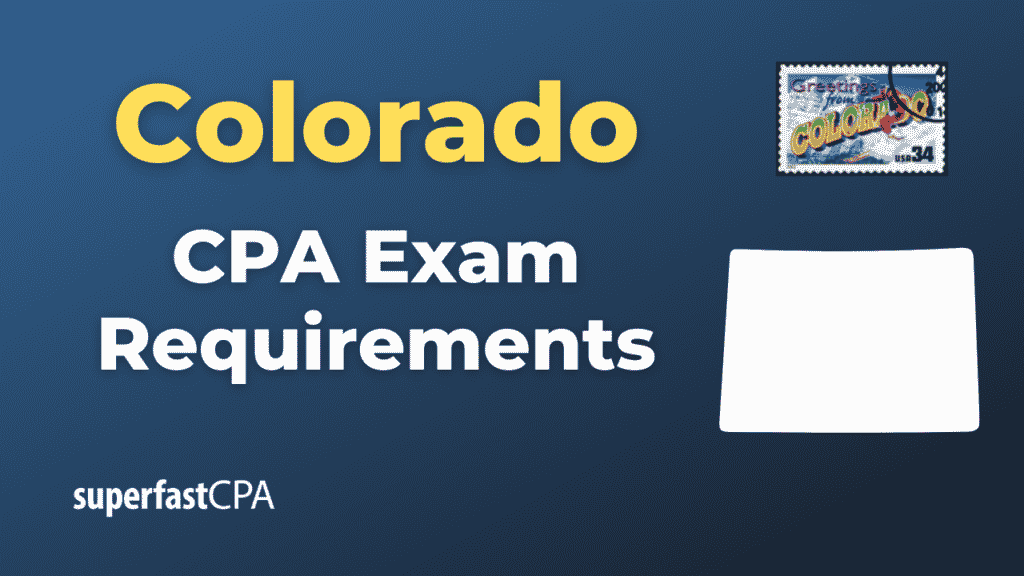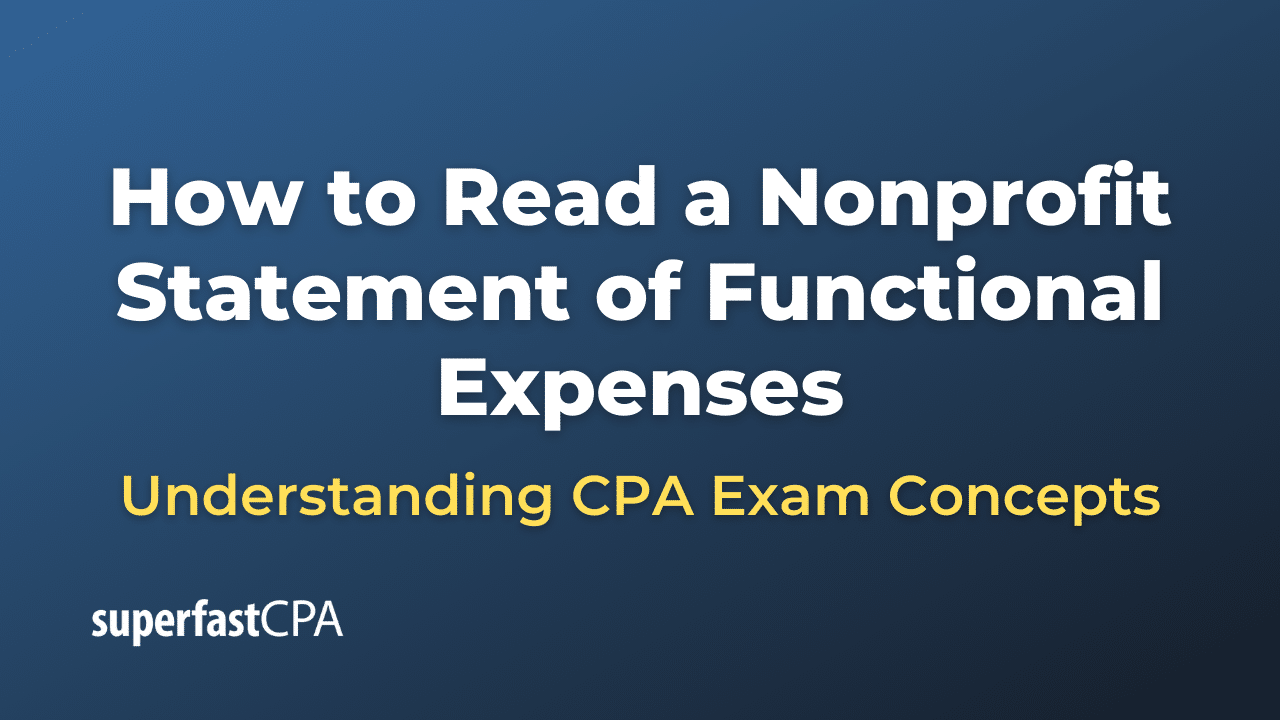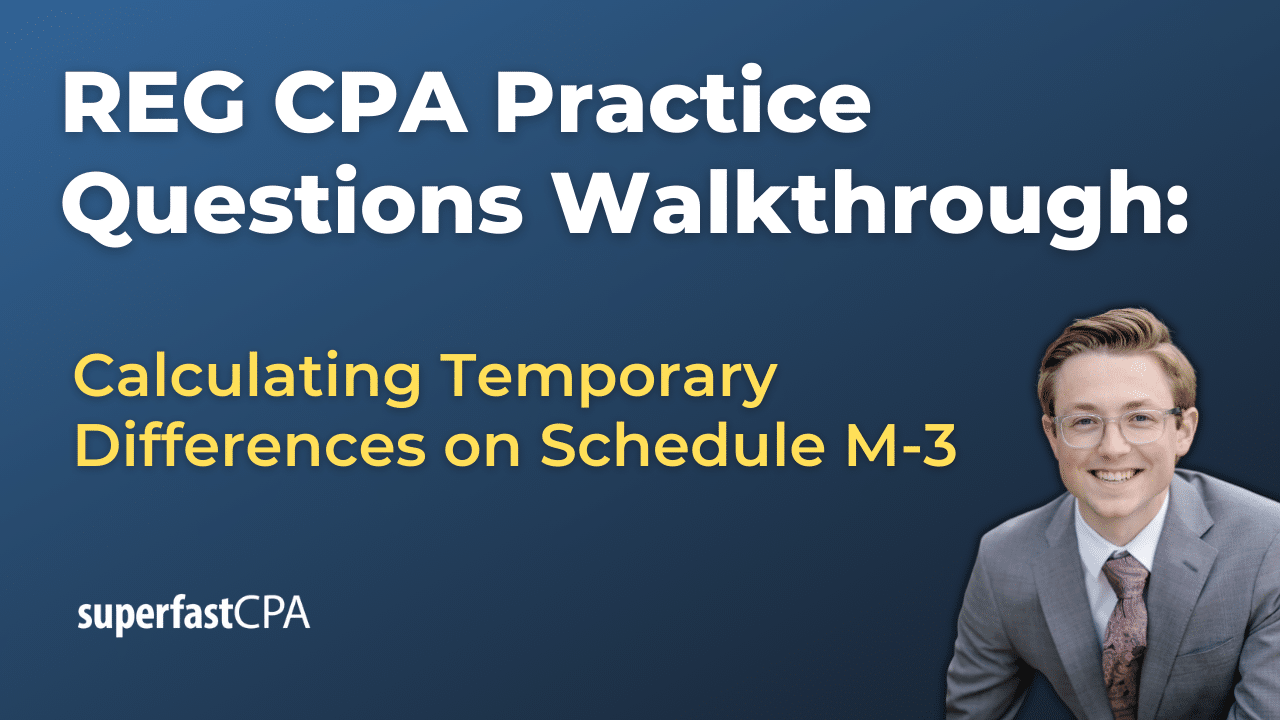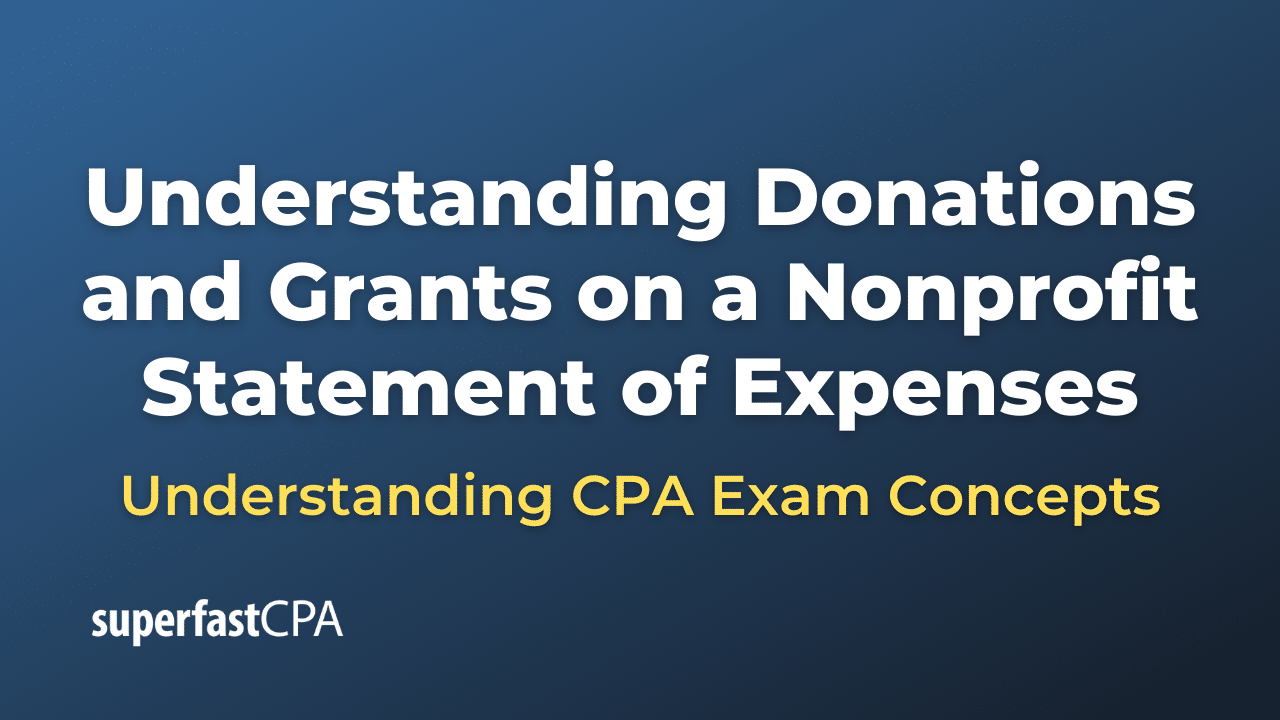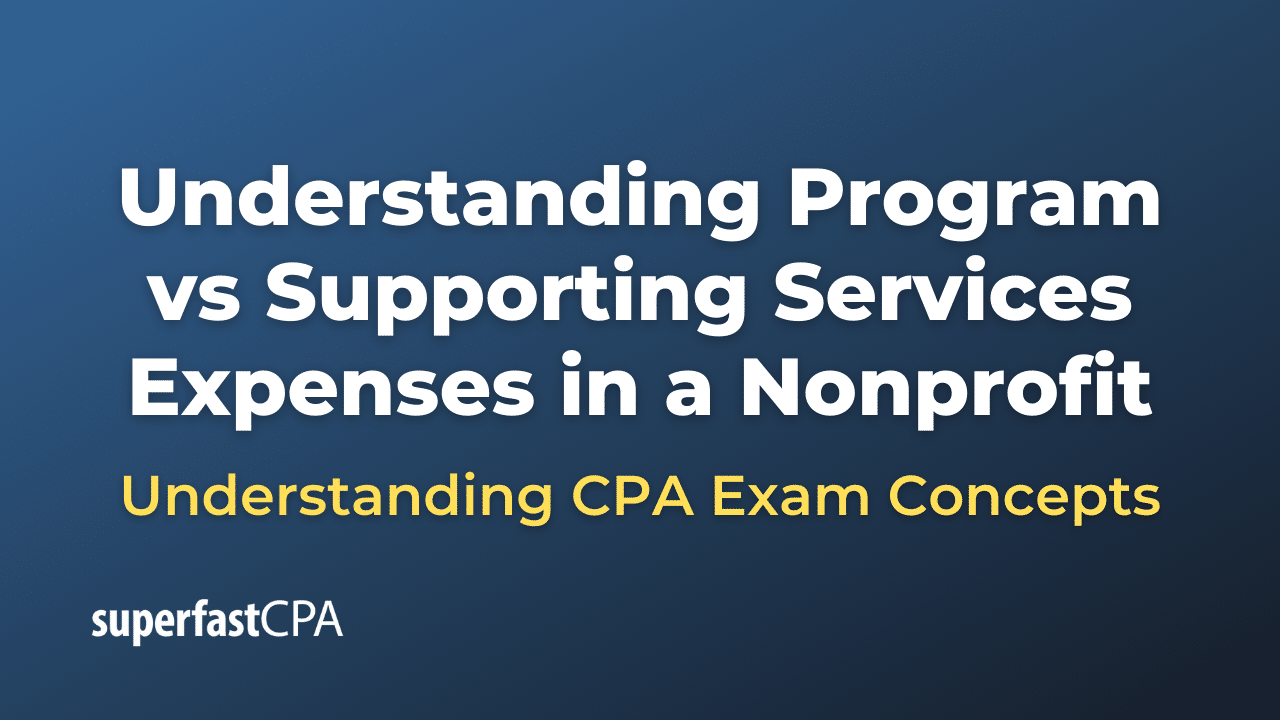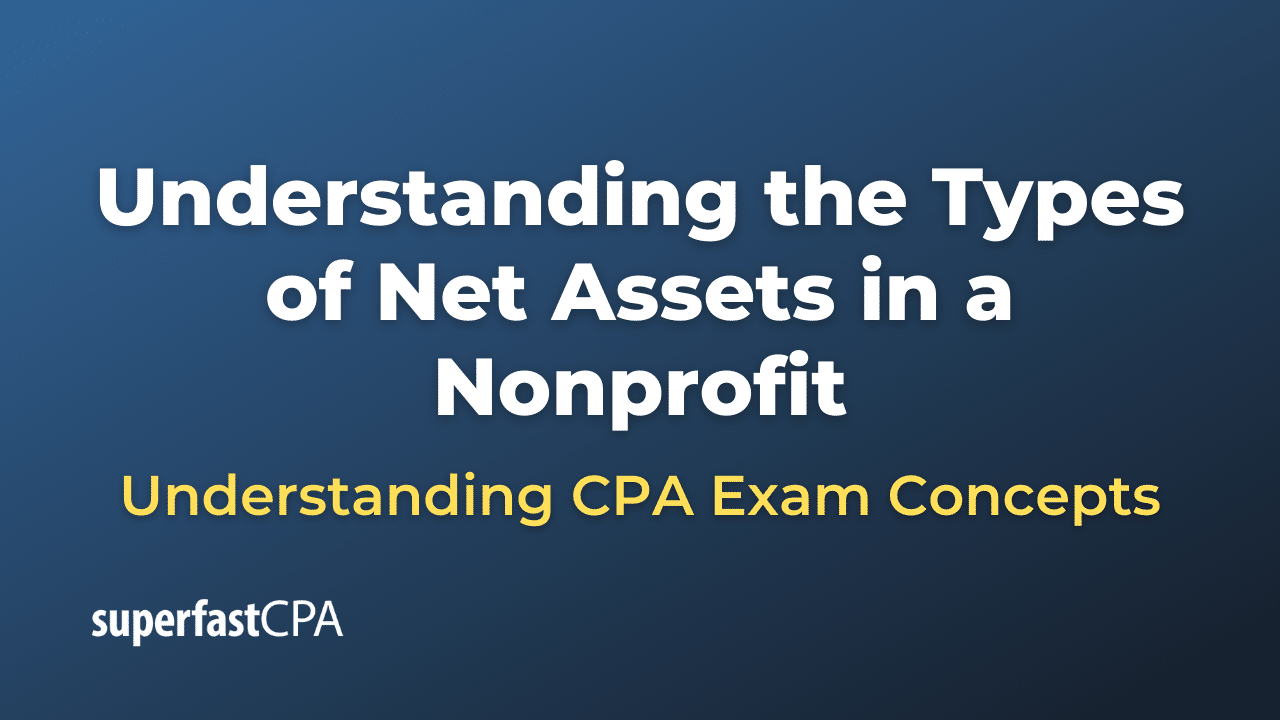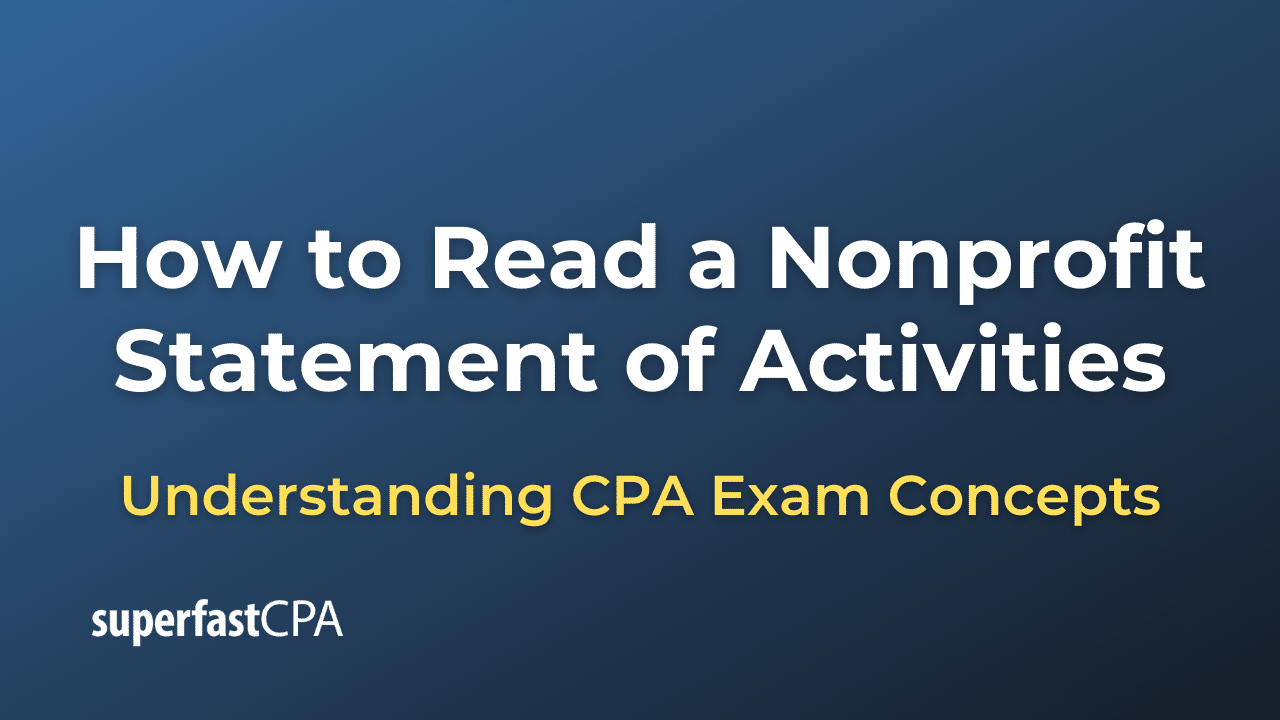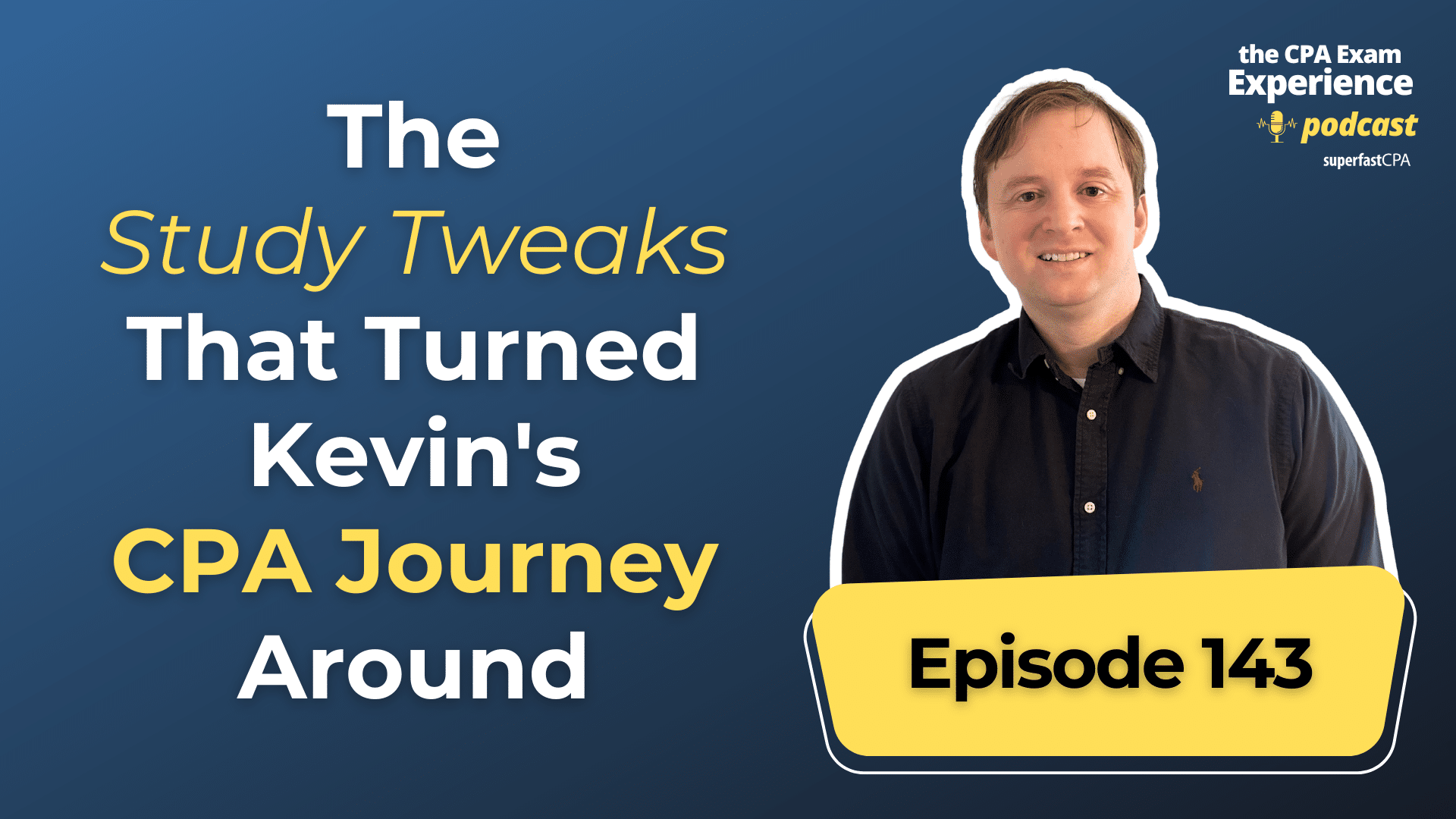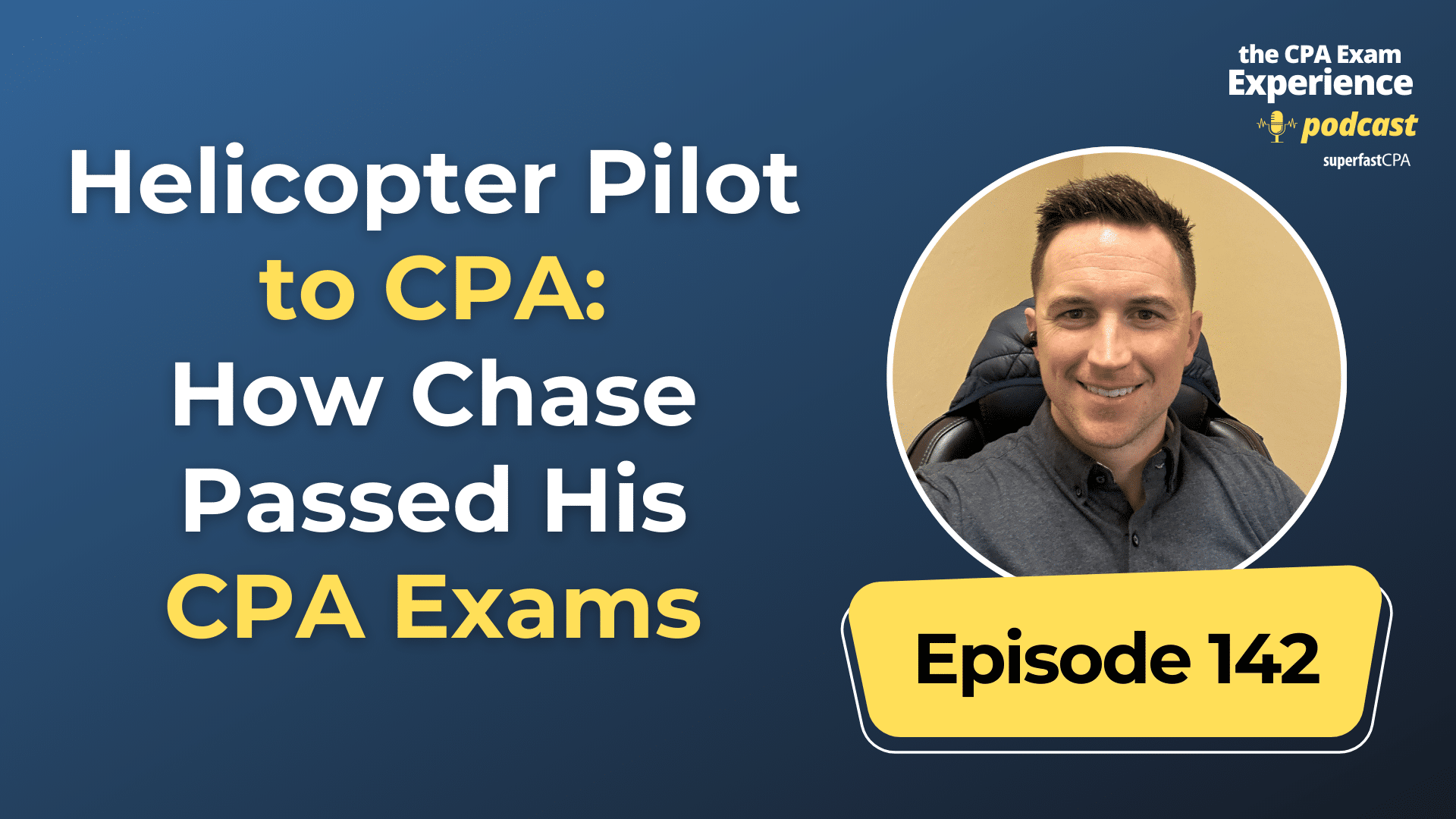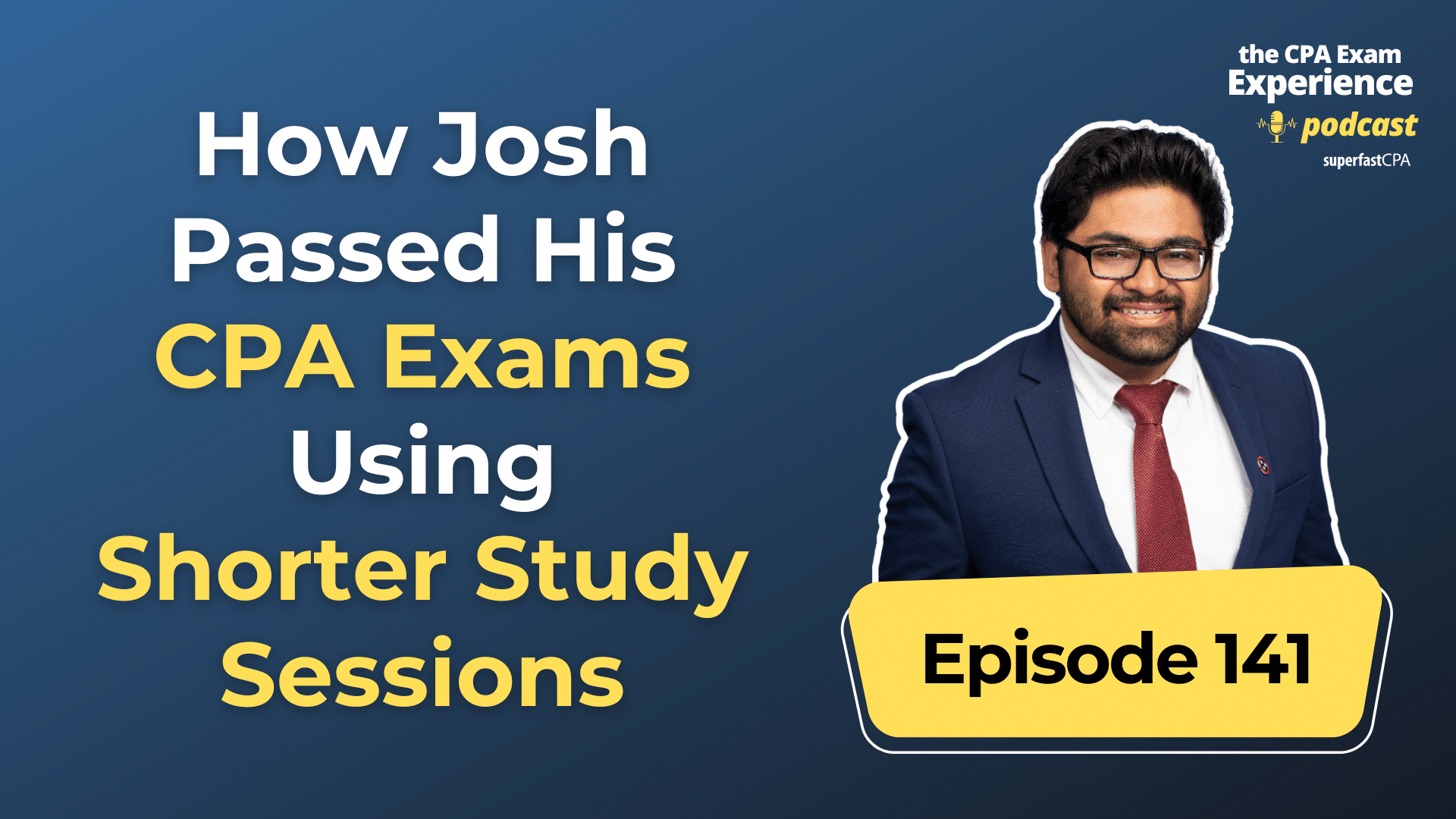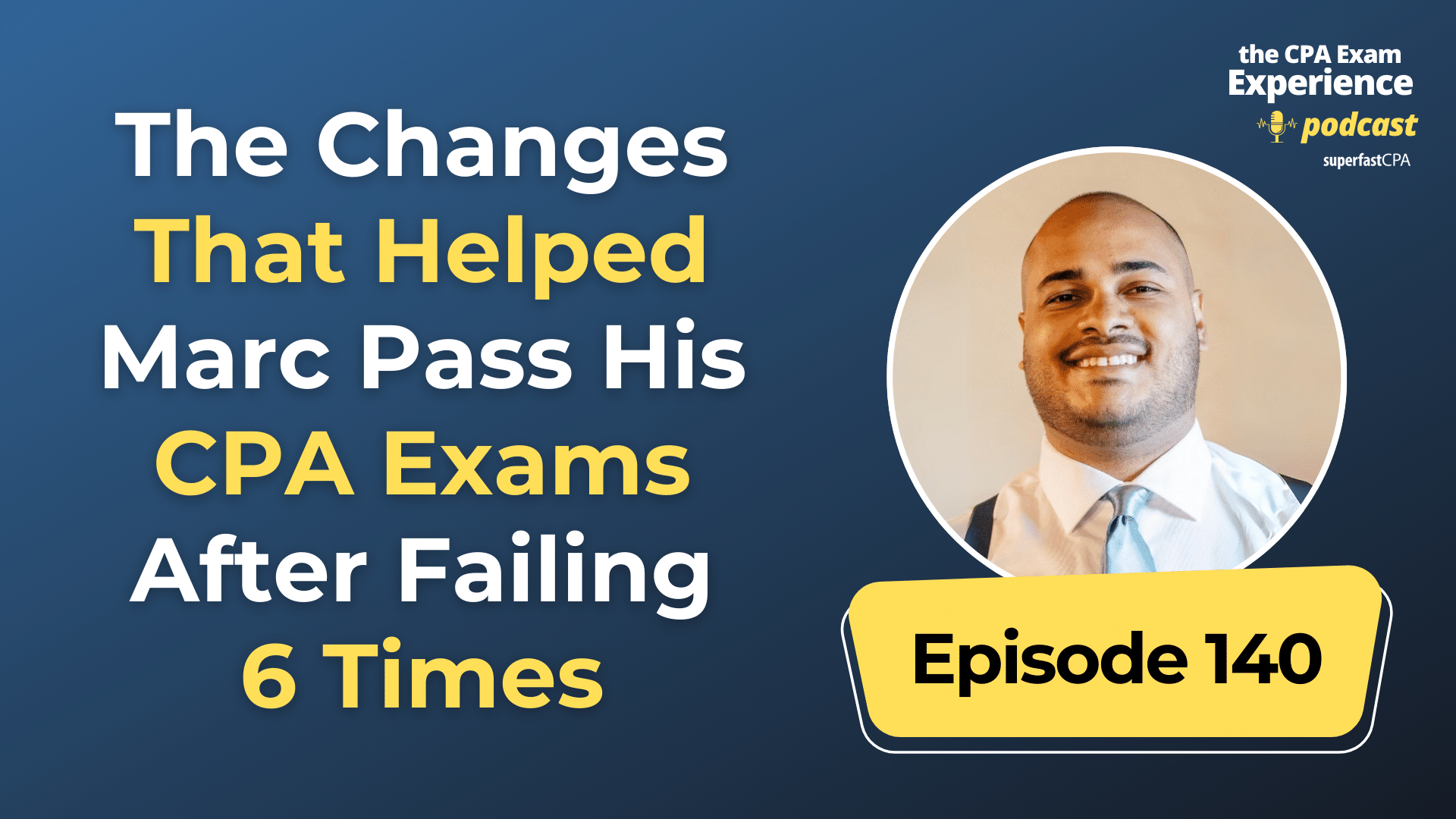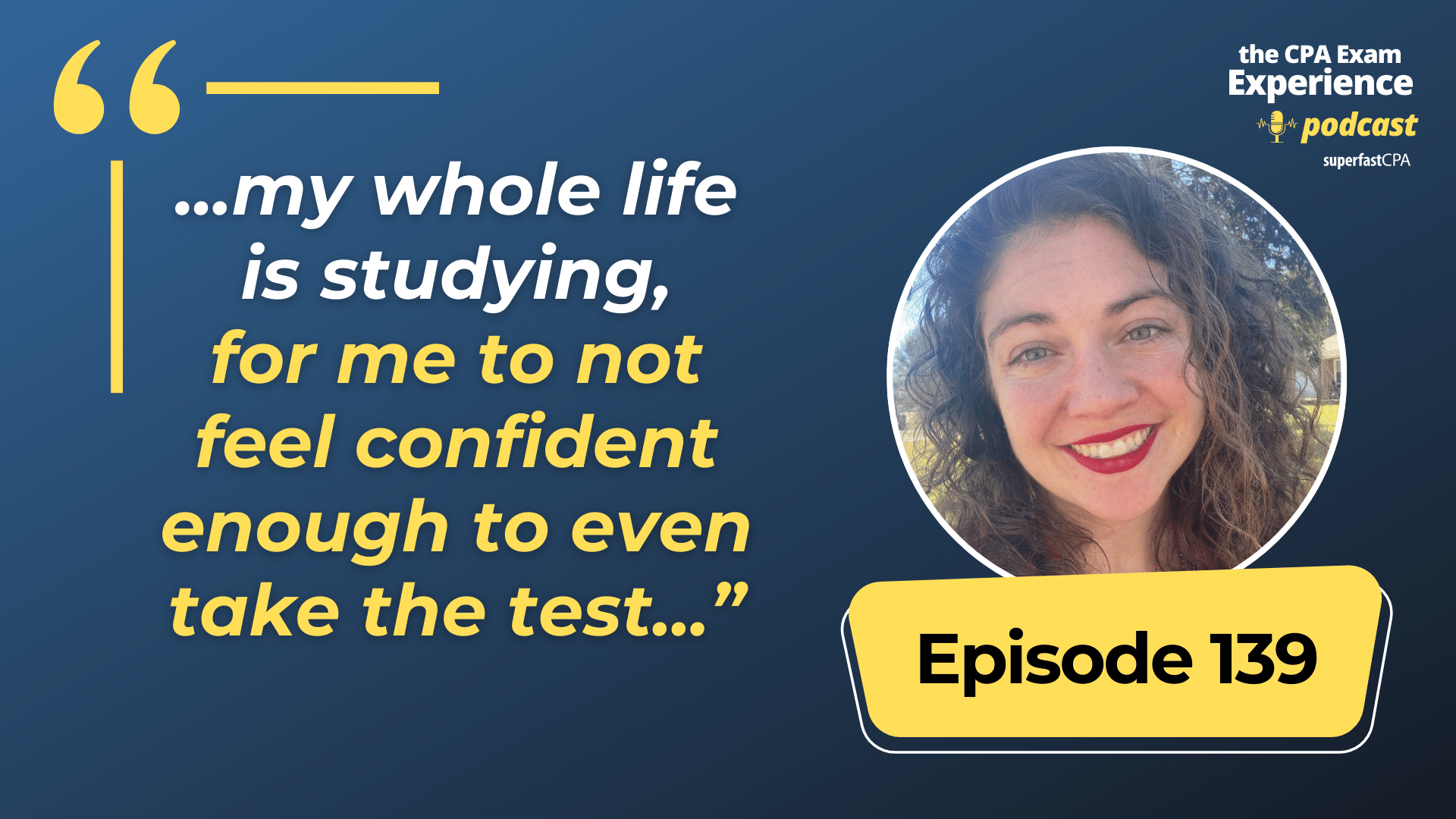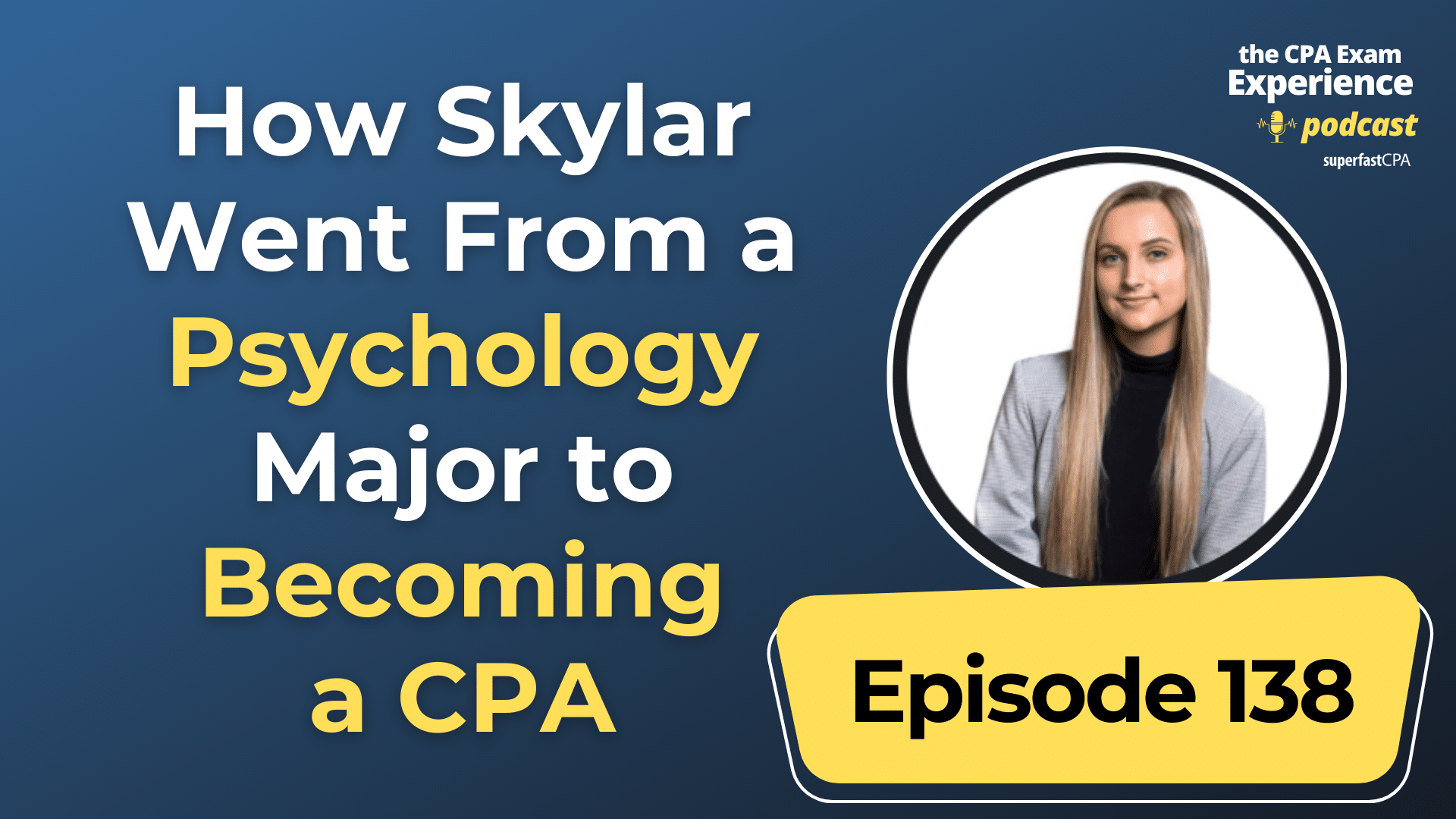If you want to become a CPA in Colorado, we’ve summarized the Colorado CPA exam requirements so that you’ll know the exact steps to become a licensed CPA in the Centennial State.
Colorado’s CPA exam requirements are possibly the most advantageous of all the state board of accountancy. Accredited Public Accountants (CPAs) are required by all Colorado State and federal government agencies to gain a higher level of knowledge. CPA in Colorado requires much hard work but ultimately is worth it. You will subsequently advance in your profession and earn more if you deserve to make the certification. Colorado’s CPA certification requirement is relatively strict compared with other state standards. The exam requires no more than 150 hours of study. This will provide you with a comprehensive review of the Colorado Uniform CPA exam requirements, as well as the education and experience required to be a licensed CPA.
How to Save Yourself MONTHS of Time and Frustration
Keep in mind that the CPA exam is the one part of getting your CPA license that you can control how long it takes. The education and experience requirements take as long as they take, but the CPA exams can take you as little as 6 months, or as long as multiple years… depending on how effective your study process is from the beginning.
Learn how to study strategically so you can save yourself tons of time and retake fees with this free training…
Table of Contents
Summary of Colorado CPA Requirements
| Credit hours to sit for the CPA exam | 120 |
| Bachelor’s required to sit for the CPA exam | Yes |
| Credit hours in accounting subjects to sit for the CPA exam | 27 |
| Credit hours in business subjects to sit for the CPA exam | 21 |
| Credit hours in auditing course concentrating on U.S. GAAS | 3 |
| Total credit hours to receive a CPA license | 150 |
| Credit hours in accounting subjects for the CPA license | 33 |
| Credit hours in business subjects for the CPA license | 27 |
| Work experience required to receive a CPA license | 1 Year |
| Ethics exam required to get a CPA license | Yes |
Colorado CPA Process
Becoming a certified public accountant (CPA) is a long process, but the rewards of becoming an accountant are plentiful. Applicants must meet the state’s three E’s—education, examination, and experience—before they can apply for a state license. These requirements ensure that all CPAs have the training and experience necessary to carry out their duties and manage tax records effectively.:
- Education
- Examination (Uniform CPA Examination)
- Experience
Sometimes it can get confusing when you are trying to apply for a CPA license, especially if you are new to all of this. We’ll make sure everything is done properly so that you get licensed and be able to practice as a CPA in Colorado.
Colorado CPA Education Requirements
To meet the Colorado CPA education requirements, applicants must complete 150 semester hours where 33 semester hours must be non-duplicative coursework at the undergraduate or graduate level. Of the 33 semester hours, 27 semester hours must include accounting courses. Of the 27 semester hours required, a total of 6 semester hours must be in auditing, which must include a 3 semester hour, or more course concentrating on U.S GAAS.
U.S GAAS concentration means that any course content referencing non-U.S standards is incidental to the course. The remaining semester hours may be in advanced auditing or a subset of basic auditing such as fraud or information technology auditing
Colorado Uniform CPA Examination
Before applicants can take the Uniform CPA Examination, they must receive an endorsement from their jurisdiction’s licensing board, which includes qualifying through education and, for some states, by meeting citizenship, residency, and age requirements. (Experience requirements do not have to be met to be eligible for the CPA exam.) We’ll help you identify everything there you need to know regarding the Colorado CPA exam requirements.
Several personal requirements must be met before you can qualify to sit for the CPA in Colorado. There are two main certification requirements.
- Valid Social Security Number
- Must fulfill educational requirements before sitting for the exam
Colorado Uniform Exam Requirements
You must have completed 120 hours of the total, non-duplicative higher education courses with the following accounting-specific qualifications:
- At least 27 semester hours of non-duplicative accounting coursework with grades of C or higher.
- 21 of these hours (excluding introductory accounting courses) in areas such as:
- Accounting Ethics
- Accounting Information Systems
- Accounting Research and Analysis
- Accounting Theory
- Auditing and Attestation Services
- Financial Accounting and Reporting of Business Organizations
- Financial Accounting and Reporting for Government and Not-for-Profit
- Financial Statement Analysis
- Fraud Examination
- Internal Controls and Risk Assessment
- Managerial or Cost Accounting
- Taxation
- Tax Research and Analysis
- 21 of these hours (excluding introductory accounting courses) in areas such as:
- A 3-semester hour, or more, auditing course concentrating on U.S. GAAS
- At least 21 semester hours of non-duplicative coursework in business administration in areas such as:
- The behavior of Organizations, Groups, and Persons
- Business Communications
- Business Ethics
- Business Law
- Computer Information Systems
- Economics
- Finance
- Legal and Social Environment of Business
- Management
- Marketing
- Quantitative Applications in Business
- Statistics
- No more than 6 of these semester hours can be in any single subject area.
Foreign Education
If you are with international education and applying, you must show confirmation that the audit course you took outside of the United States had a concentration in U.S. GAAS. You must additionally submit the following in addition to the evaluation of international education:
- A letter from the school confirming the audit course has a concentration in US GAAS
- The course’s syllabus
- The primary textbook used to include the name of the publisher and the authors.
- Failure to provide this information will result in an incomplete application.
At the time of application, all educational documents must be submitted, including official school transcripts, SSN affidavits, course syllabuses, textbooks used for audit courses, or a letter from the school confirming US GAAS concentration and/or international evaluations with international transcripts. The academic institution or evaluation service must send these documents directly to CPAES.
Transcripts must be mailed directly from the institution to the NASBA CPA Examination Services (CPAES) office in Nashville – not the Colorado State Board of Accountancy in Colorado. Transcripts can also be emailed directly from the university to etranscript@nasba.org.
Age & Residency Requirements
Colorado does not have a minimum age requirement to sit for the CPA exam
Colorado CPA Exam Cost Breakdown
The Colorado CPA exam cost consists of four main fees: an education evaluation application fee of $75, the $339.80 per CPA exam section totaling $1,359.20 for all four sections, the application fee of $85, and then the initial license fee of $150.
| Education Evaluation Application Fee | $75.00 |
| Auditing and Attestation (AUD) | $339.80 |
| Financial Accounting and Reporting (FAR) | $339.80 |
| Regulation (REG) | $339.80 |
| Disciplines (ISC, TCP, or BAR) | $339.80 |
| Total for all 4 CPA Exam Sections | $1,359.20 |
| Registration Fee | $85.00 |
| Initial CPA License Registration Fee | $150.00 |
Uniform CPA Examination
The CPA exam consists of the three core sections and candidates would need to select one of the three discipline to demonstrate deeper skills and knowledge, allowing candidates to choose a specialization. There is no set order in which the exam portions must be completed. The components of the CPA test are as follows:
- Auditing and Attestation. This exam section covers the basics of financial and attest services, such as audits, reviews, compilations, and preparing agreements.
- Financial Accounting and Reporting. This exam section covers financial accounting topics for all business entities, including the government and nonprofits.
- Regulation. This exam section covers federal taxation, tax services, professional ethics, and business law for individuals and business entities.
- Disciplines
- Business Analysis and Reporting (BAR): Focused on financial reporting, data analytics, and performance management. This area is suitable for those who are interested in financial analysis and reporting. An extension of FAR core.
- Information Systems and Controls (ISC): Concentrates on IT governance, data security, and system controls. Ideal for individuals who wish to specialize in IT audits and information security. An extension of AUD core.
- Tax Compliance and Planning (TCP): Centers on personal financial planning and tax compliance for individuals, businesses, and other entities. Suitable for those with a strong interest in taxation and financial planning. An extension of REG core.
The applicant must score 75 for all four examination parts within an 18-month window to pass the CPA exam.
Colorado CPA Education Requirements
Getting a CPA, or Certified Public Accountant license is all about education. A CPA helps the state run their audits, and these people know how to detect fraud. So let’s take a look at the educational requirements needed to become a fully licensed Colorado CPA. Keep reading to learn more.
- Bachelor’s degree from a regionally accredited university or baccalaureate granting college.
- 150 semester hours of non-duplicative coursework at the undergraduate or graduate level
Specific Accounting Course Requirements
33 semester hours of non-duplicative accounting coursework at the undergraduate or graduate level as follows:
- All courses must be designated by an accounting program code or the Applicant must otherwise demonstrate that the coursework was in accounting
- The 33 semester hours must include 27 semester hours of accounting courses, excluding introductory accounting courses, covering the subject areas below
- Accounting Ethics
- Accounting Information Systems
- Accounting Research and Analysis
- Accounting Theory
- Auditing and Attestation Services
- Financial Accounting and Reporting of Business Organizations
- Financial Accounting and Reporting for Government and Not-for-Profit Entities
- Financial Statement Analysis
- Fraud Examination
- Internal Controls and Risk Assessment
- Managerial or Cost Accounting
- Taxation
- Tax Research and Analysis
- Other areas as approved by the Colorado State Board
Of the 27 semester hours required above, a total of 6 semester hours must be in auditing, which must include a 3 semester hour, or more, course concentrating on U.S. GAAS.
Introductory accounting courses mean courses such as principles of accounting, accounting, and tax software courses, payroll accounting, and other basic accounting courses as determined by the Colorado State Board. Such courses will not count towards the 27 hour requirement.
The 27 hours required above must also include a 3 semester hour, or more, course concentrating on accounting or business ethics. The course content should include the following: the ethical responsibilities of accountants, both personal and professional; ethical dilemmas facing accountants; ethical theory; the various accounting codes of conduct and ethical guidance for accountants; and the application of ethical theory, codes of conduct, and professional standards.
Specific Business Course Requirements
27 semester hours of non-duplicative coursework in business administration at the undergraduate or graduate level, such as:
- Behavior of Organizations, Groups, and Persons
- Business Communications
- Business Ethics
- Business Law
- Computer Information Systems
- Economics
- Finance
- Legal and Social Environment of Business
- Management
- Marketing
- Quantitative Applications in Business
- Statistics
- Other areas as approved by the Board
Of the 27 semester hours, no more than 9 semester hours can be in any single subject area. But semester hours in excess of the 9-hour maximum may count toward the total 150 semester hour requirement.
All coursework must address subject areas as provided above, but the coursework need not be taken within the business or accounting department.
Foreign Education
Applicants who obtained their education outside the United States must:
- Have the educational credentials evaluated by one of the organizations listed below:
- NASBA International Evaluation Services (NIES) https://nasba.org/products/nasbainternationalevaluationservices/
- Any member organization of the National Association of Credential Evaluation Services, Inc. (NACES). https://www.naces.org/
- Any member organization of the Association of International Credential Evaluators, Inc. (AICE).
- Submit the international transcript(s) from each institution at which original credit toward the educational requirement has been earned.
- U.S. Generally Accepted Auditing Standards (GAAS) Requirement:
- In order for NASBA to evaluate whether this requirement is met, please have your institution submit a Course Syllabus, Course Description and the title of the textbook to include the author, publisher used for the auditing course or a Letter directly from your institution to NASBA or your international evaluation service stating that your auditing course includes U.S. GAAS.
- The evaluation of the international transcript(s) must be a course-by-course listing.
- Completed original evaluations must be received by NASBA directly from the evaluation service. Photocopies are not acceptable.
Please Note: Education requirements must be met through academic coursework completed at an accredited institution. Professional training is not acceptable toward these requirements. Coursework completed as part of a Chartered Accountant program is considered professional training and is, therefore, not accepted toward the education requirements for a Colorado CPA license.
Why an Emphasis on 150 Semester Hours of Education for Aspiring CPAs?
There are several reasons why a traditional four-year undergraduate program is no longer adequate for obtaining the requisite knowledge and skills to become a CPA:
- Significant increases in official accounting and auditing pronouncements and the proliferation of new tax laws have expanded the knowledge base that professional practice in accounting requires.
- Business methods have become increasingly complex. The proliferation of regulations from federal, state, and local governments requires well-educated individuals to ensure compliance. Also, improvements in technology have had a significant effect on information systems design, internal control procedures, and auditing methods.
- The staffing needs of accounting firms and other employers of CPAs are changing rapidly. With more sophisticated approaches to auditing now in use, and with the increase in business demands for a variety of highly technical accounting services and greater audit efficiency, the requirements for effective professional practice have increased sharply. The need for a large number of people to perform many routine auditing tasks is rapidly diminishing.
How to Meet the 150-Hour Requirement
Many colleges and universities offer bachelor’s degree and master’s degree programs in accounting. To obtain 150 semester hours of education, students do not necessarily have to get a master’s degree. They can meet the requirement at the undergraduate level or get a bachelor’s degree and take some courses at the graduate level. Students can also choose any of the following:
- Combine an undergraduate accounting degree with a master’s degree at the same school or a different one;
- Combine an undergraduate degree in some other discipline with a master’s in accounting or an MBA with a concentration in accounting;
- Enroll in an integrated five-year professional accounting school or program leading to a master’s degree in accounting.
In most cases, the additional academic work needed to acquire the technical competence and develop the skills required by today’s CPA is best obtained at the graduate level. Graduate-level programs are an excellent way to more fully develop skills such as communication, presentation, and interpersonal relations and to integrate them with the technical knowledge being acquired.
For these reasons, leading professional organizations such as the AICPA, the National Association of State Boards of Accountancy, and the Federation of Schools of Accountancy have consistently supported the 150-hour education requirement for entry into the accounting profession.
Colorado CPA Experience Requirements
The experience requirements necessary to qualify for a CPA license in Colorado are listed below.
One (1) year of experience in ONE area (Public Accounting, Industry, Government or Academia):
- Must include a minimum of 1,800 qualifying hours which must have been obtained over a period of not less than one (1) year and not more than three (3) years.
- Must have been met within five (5) years preceding date of application.
- All qualifying hours must be verified by an active Certified Public Accountant (CPA) in good standing for the entire period verified. The verifier must attest to having direct and continuous knowledge of the work done by the Applicant and to having performed contemporaneous periodic review and evaluation of the Applicant’s work. The verifier cannot be a subordinate to or otherwise under the supervision or control of the Applicant.
- “Qualifying work hour(s)” means hours spent primarily applying the standards described in Rule 4.1.B. Holidays, vacations, and family/employee sick leave shall not be included as qualifying work hours. Clerical experience does not count toward qualifying work hours. Clerical experience includes, but is not limited to, mere data entry, mere mathematical calculations, mere account analysis of information already recorded, and merely recording information in the general ledger.
Getting your Colorado CPA License
After accomplishing the requirements, the final step is to apply for the CPA License. You will have to use NASBA’s licensing service to apply for the CPA License. Upon application, make sure all documents and payments are prepared to avoid delays in your application.
Colorado CPA License Fee
- Initial License– $150
- Transfer of Grades – $185
- Reciprocal – $185
- Firm – $175
AICPA Ethics Exam
For the Colorado CPA ethics exam requirement after passing the Uniform CPA Exam, Colorado CPA candidates must complete the AICPA’s Professional Ethics: The AICPA’s Comprehensive Course, available online on the AICPA’s website. The course and exam must be completed with a grade of 90 percent or above to qualify.
Colorado CPA Experience Requirements
The Colorado CPA experience requirements necessary to qualify for a CPA license in Colorado are listed below.
One (1) year of experience in ONE area (Public Accounting, Industry, Government or Academia):
- Must include a minimum of 1,800 qualifying hours which must have been obtained over a period of not less than one (1) year and not more than three (3) years.
- Must have been met within five (5) years preceding the date of application.
- All qualifying hours must be verified by an active Certified Public Accountant (CPA) in good standing for the entire period verified. The verifier must attest to having direct and continuous knowledge of the work done by the Applicant and to having performed contemporaneous periodic review and evaluation of the Applicant’s work. The verifier cannot be a subordinate to or otherwise under the supervision or control of the Applicant.
- “Qualifying work hour(s)” means hours spent primarily applying the standards described in Rule 4.1.B. Holidays, vacations, and family/employee sick leave shall not be included as qualifying work hours. Clerical experience does not count toward qualifying work hours. Clerical experience includes, but is not limited to, mere data entry, mere mathematical calculations, mere account analysis of information already recorded, and merely recording information in the general ledger.
Reciprocal License
A reciprocal license is available to out-of-state CPAs who wish to practice in Colorado. If an applicant passes the following criteria, he or she may be granted a reciprocal license:
- Holds an active license from a substantially equivalent jurisdiction and/or possesses the requirements necessary for the issuance of a certificate in Colorado.
- Attests to having completed all CPE required by the other state as of the application receipt date.
- Passed the AICPA Professional Ethics Exam
International License
- Passed the Uniform CPA Examination or the International Qualifications Examination (IQEX).
- Meets the experience requirement mentioned above.
- Completed the AICPA ethics course and passed with a 90 percent or better within two years immediately preceding the date of application.
Individuals who qualify under this rule may have their experience verified by an individual who is a licensed CPA and/or designated from an IQAB-approved country.
Summary
The State of Colorado has some of the highest standards for professional licensure in North America. The CPA Exam is also one of the most difficult exams to pass that requires extensive knowledge of Federal and Uniform Laws. I wish you well on your journey to becoming a Colorado Certified Public Accountant. May this serve you as a guide in your journey to become a CPA.
Colorado CPA Exam F.A.Q.s
Here are some commonly asked questions regarding Colorado’s CPA exam and CPA licensure requirements.
What Are the Requirements to Sit for the CPA Exam in Colorado?
To sit for the CPA exam in Colorado, you must meet the education requirements which require a bachelor’s degree or higher and at least 27 total semester hours of non-duplicative accounting coursework. 21 of these hours must be above the introductory level. 21 total semester hours of non-duplicative business administration coursework. No more than 6 semester hours can be in any single subject area.
How Long Does it Take to Become a CPA in Colorado?
You will need to attain the full 150 semester hours required nationwide. This is roughly five years of education, then one year to take and pass the CPA exam, and then one year to meet the experience requirement. That makes a total of 6-7 years to get your CPA license. Once you have met all the requirements and have submitted your application to receive your CPA license from the Colorado State Board of Accountancy, if approved you will receive your license in the mail within 3-4 weeks.
How Much Does It Cost to Take the CPA Exam in Colorado?
The total cost of the CPA exam for an aspiring CPA in Colorado is $1,197.60, this is considering that you pass all exams on the first try. The breakdown of the cost is $160 for the application fee, $952.60 exam fee for all four sections of the exam ($238.15 per section), and $85 registration fee.
How Many CPAs are in Colorado?
According to the U.S. Bureau of Labor Statistics (BLS) as per the May 2021 data, there are currently around 36,470 accountants in Colorado with an annual salary of $85,120.
Do CPA Scores Expire in Colorado?
Regardless of the state, once a CPA candidate passes their first CPA exam section, they then have 18 months to pass the remaining three CPA exam sections to complete the Uniform CPA Examination. Once a CPA candidate has passed the Uniform CPA Examination, their scores never expire in Colorado.
How Many Accounting Credits Do you Need to Sit for the CPA License in Colorado?
You must complete at least 27 total semester hours of non-duplicative accounting coursework. 21 of these hours must be above the introductory level. 21 total semester hours of non-duplicative business administration coursework. No more than 6 semester hours can be in any single subject area.
Does Colorado Require an Ethics Exam for the CPA?
Yes, the Colorado State Board requires all candidates applying for the CPA license must complete at least 8 hours in length the AICPA ethics examination or its equivalent. With a minimum score of 90% to pass the test.
You can get the AICPA Ethics Exam here.
Do You Need a Master’s to be a CPA in Colorado?
Not necessarily. You can either get a master’s or a post-baccalaureate certificate to complete the needed additional 30 semester hours after getting your bachelor’s degree.

